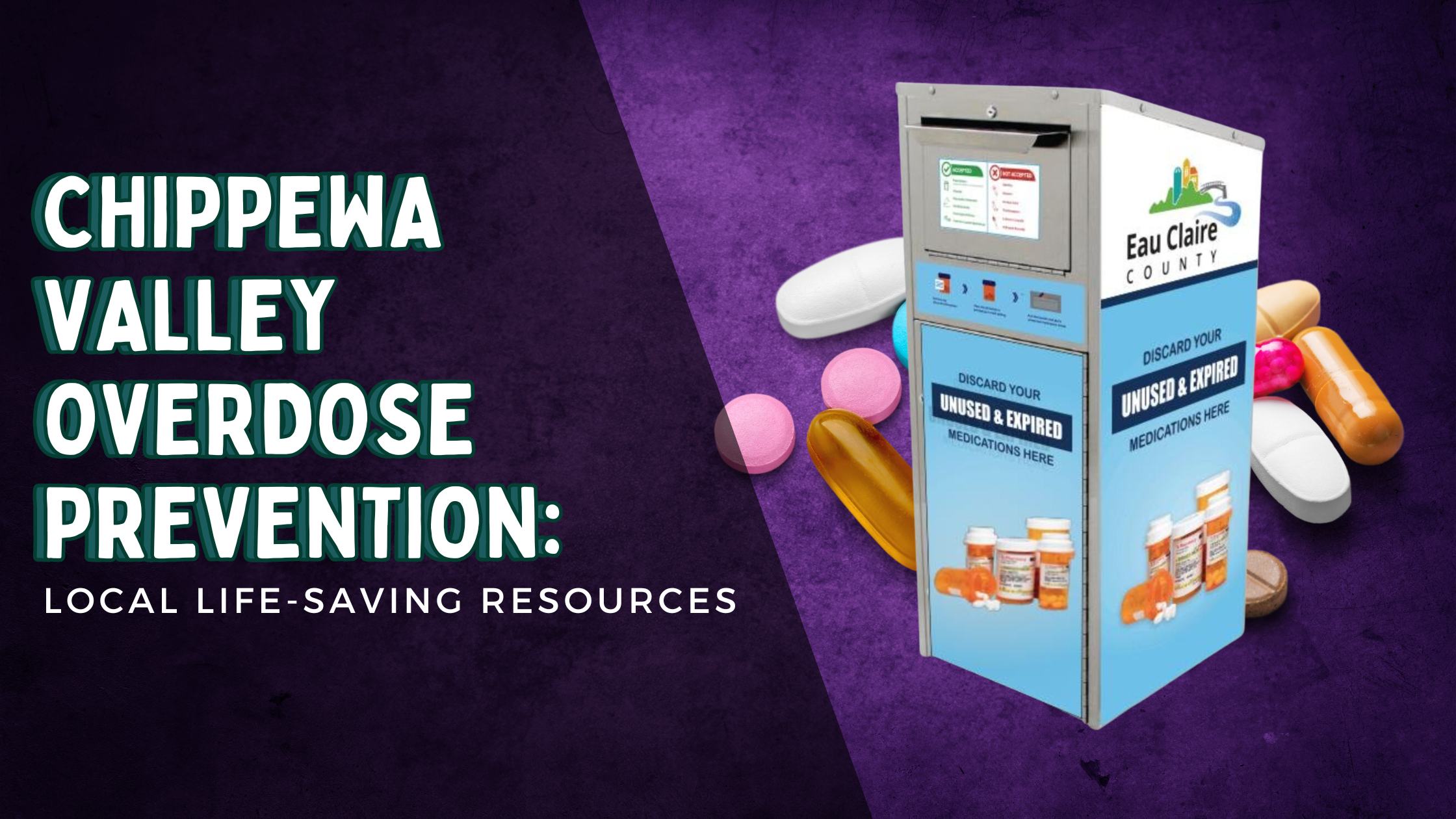Chippewa Valley Overdose Prevention: Local Life-Saving Resources
In Western Wisconsin, the fight against the opioid crisis and drug-related overdoses remains a critical concern. As our community continues to address this challenge, it’s vital for individuals, families, and organizations alike to be informed about the available resources for overdose prevention and support. Whether you or someone you know is struggling with substance use or you’re simply looking to be prepared in case of an emergency, Eau Claire has several key resources.
To better understand how opioids are impacting our community, check out the new Eau Claire County Opioid Dashboard. This dashboard provides up-to-date data on opioid use, overdoses, and medication disposal efforts, helping community members stay informed and engaged in harm reduction initiatives.
How You Can Help
Dispose of Unused Medications: Clean out your medicine cabinet and safely dispose of any unwanted medications at a drop box location.
Get Trained in Narcan Use: Even if you don’t think you’ll ever need it, being trained in Narcan administration could help save a life.
Spread Awareness: Share these resources with friends, family, and neighbors. The more people know where to find help, the safer our community becomes.
Medication Disposal
Safely disposing of unused or expired medications is a key step in preventing misuse and accidental overdoses. There are several locations around the Chippewa Valley where you can dispose of medications safely. A full list of locations can be found at www.echealthalliance.org/resources.
One of the newest tools available is a 24/7 medication drop box located in the lobby of the Eau Claire County Jail (710 2nd Ave., Eau Claire). The drop box is accessible from 8 a.m. to 4:30 p.m., Monday through Friday. After hours and on weekends, simply press the button at the main entrance to be buzzed in.
Using the drop box is quick, anonymous, and free. Just remove any personal information from prescription labels, secure the medication packaging, and drop it off with peace of mind. By disposing of medications responsibly, you reduce the risk of others accidentally or intentionally misusing them.
Narcan (Naloxone) Access and Training
Narcan is a life-saving medication that can reverse the effects of an opioid overdose. Many local organizations offer free Narcan and training to ensure that community members are equipped with the knowledge needed to administer it safely. Narcan can be used on adults, children, and even pets. Training on how to use Narcan takes only a few minutes and is widely available.
Here are some places to access Naloxone in the Chippewa Valley:
Vivent Health (505 S. Dewey St. #107, Eau Claire): Offers harm reduction services, including access to Narcan. Call ahead to check availability or arrange training sessions.
At the Roots LLC (Banbury Place Building 2, Suite 301): In partnership with Eau Claire County Public Health, we provide naloxone and instruction on how to use it to community members. Reach out to schedule a time to stop by for a quick info session and pickup.
Eau Claire County Jail Lobby: Thanks to a partnership between the Sheriff’s Office and the Health Department, Narcan is available to the public in the jail lobby.
UW-Eau Claire Campus: There are 19 locations across campus with Narcan, including all residence halls and other high-traffic areas. Narcan can be used in an emergency or taken for future use.
Dunn County Health Department: Naloxone, gun locks, and hygiene kits are all available in the vending machine in the Dunn County government building near the entrance from 8 a.m. to 4:30 p.m. during the week.
Spreading Awareness
One of the most powerful ways to make a difference in our community is by spreading awareness. Share what you know about local resources, like where to access free Narcan (naloxone), how to safely dispose of medications, and the importance of harm reduction.
Conversations with family, friends, coworkers, and neighbors can help reduce stigma and ensure that more people know where to turn in a crisis.
It’s not just about knowledge—it’s about building a network of support that can prevent tragedies and save lives.
The more we talk about overdose prevention and available resources, the closer we get to a safer, healthier community for everyone.



